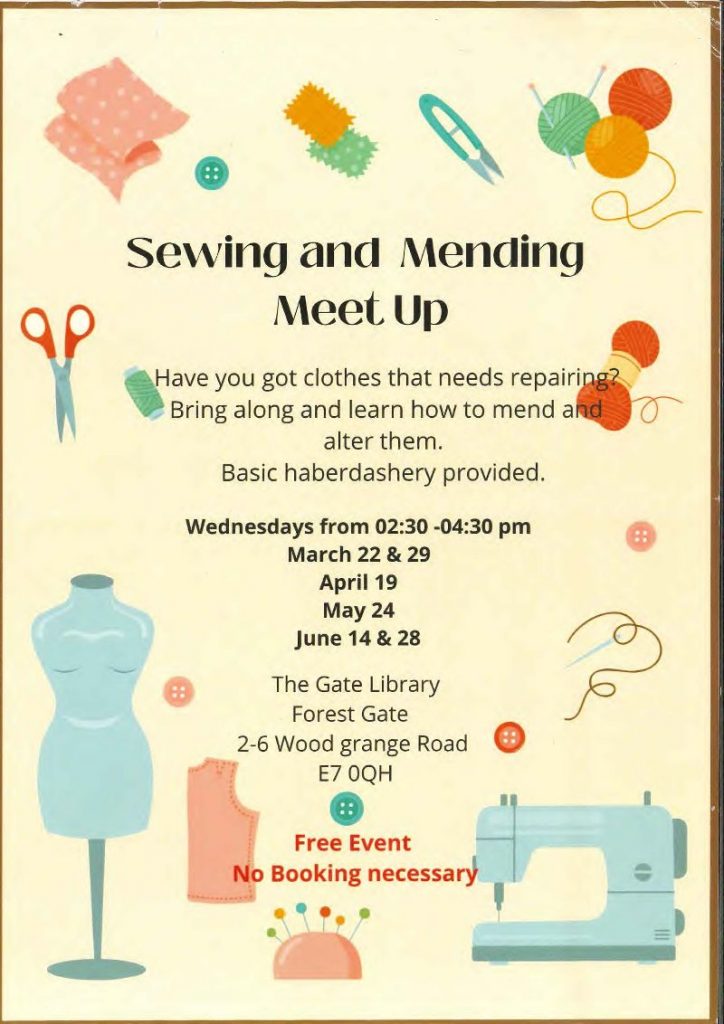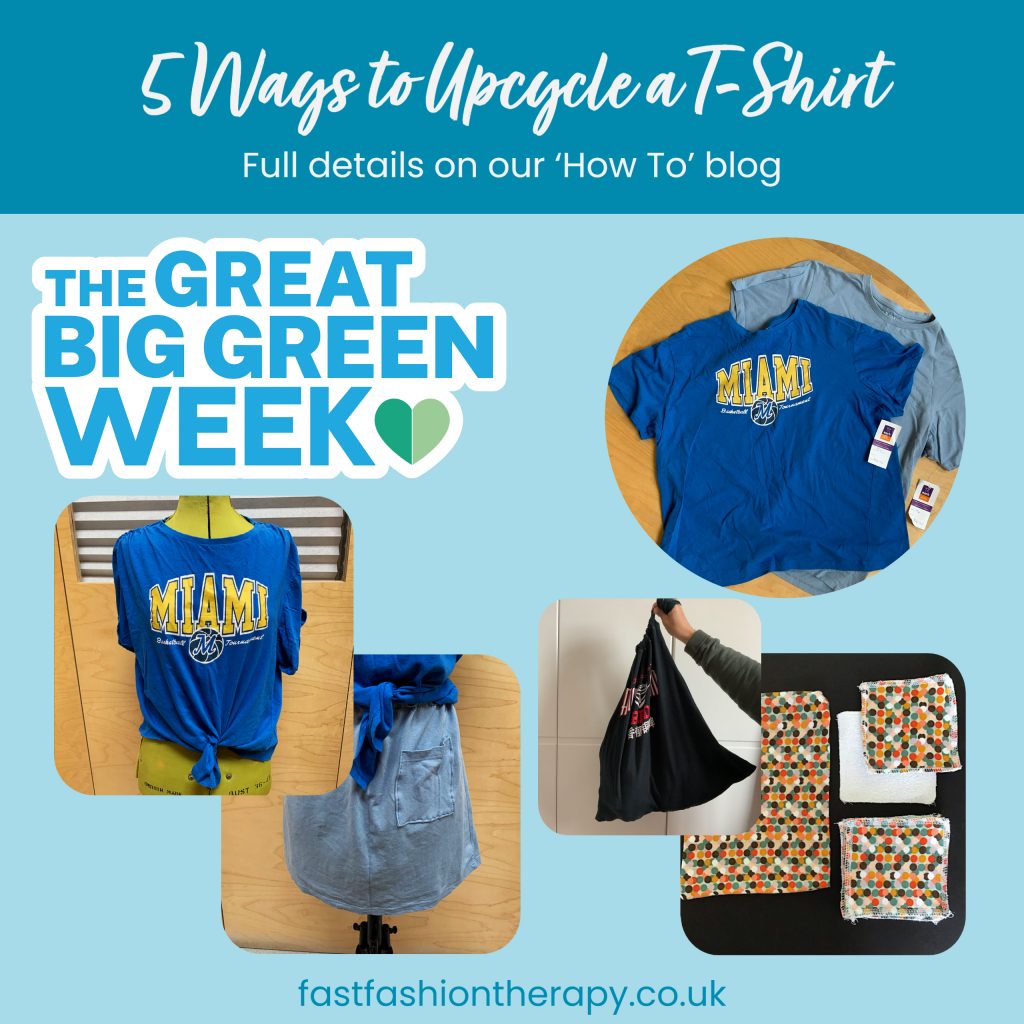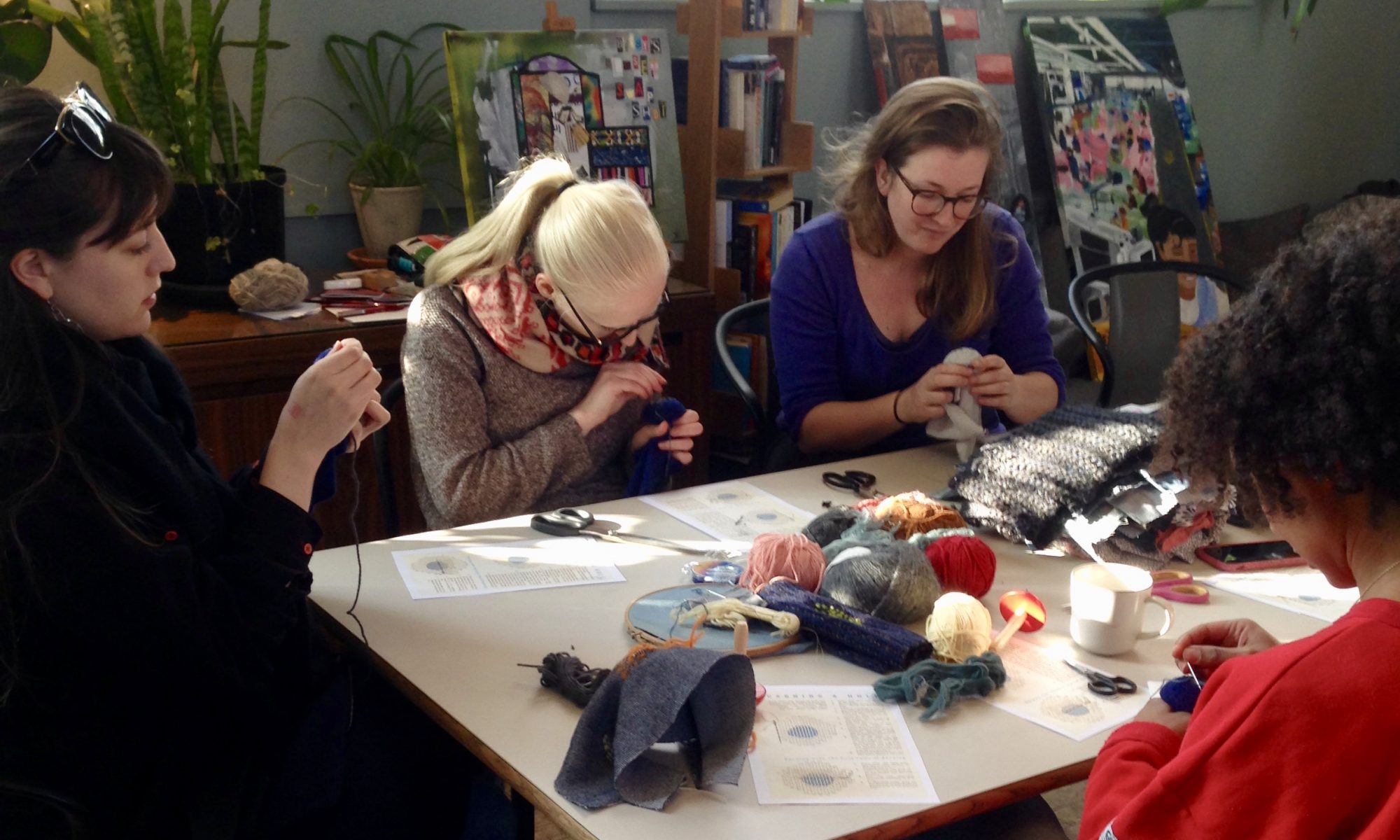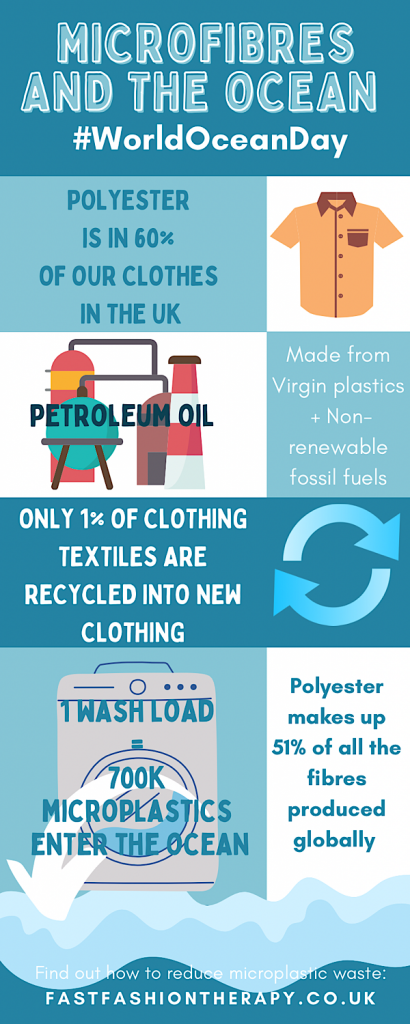5 Ways to get involved by mending your clothes
Today is the start of The Great Big Green Week, but what is it? The Great Big Green Week is the UK’s biggest ever celebration of community action to tackle climate change and protect nature.

Every year, people come together to unleash a wave of support for action to protect the planet. Tens of thousands of people in every corner of the country celebrate the heartfelt, brave, everyday actions being taken to stand up for nature and fight climate change.
We take part by sharing our clothes mending skills through community workshops and online How To videos and blogs. At Fast Fashion Therapy we encourage repair, up-cycling and remodelling of used clothes, looking to break our habit to always buy new. Fix holes in jeans, darn jumpers, shorten sleeves or create a new outfit from something already in the wardrobe.
Here are our 5 tips on how to get involved in this years The Great Big Green Week
1. Join a clothes mending workshop
We host a clothes repair workshop on Monday evenings in London. Our workshops are full until end July but there are lots of other clothes mending workshops taking place around the country. We’ve listed a few taking place in London but if you search ‘Clothes mending workshop’ + your town. Or ‘Repair Cafe’ + your town, then hopefully you will find one. If you are interested in setting up your own clothes repair workshop, get in touch and we can give you some tips.

Ealing Repair Cafe in West London hold regular community clothes mending sessions. More details on their Facebook Page.
2. Mend your clothes at home
If you can’t find a clothes mending workshop close to you then we run an online mend-a-long. We send out a Zoom link once a month and a group of us join in to collectively repair our clothes. We don’t teach at this session, instead it is an hour once a month to encourage us to get our clothes mended. There is lots of opportunity to ask questions and share clothes mending ideas with the group. We have regular attendees and new joiners too, everyone is welcome. Bring along something to repair or sew or knit and join in the chat. Our online mend-a-long is free to join thanks to a grant from Localgiving and Postcode Society Trust, a grant-giving charity funded by players of People’s Postcode Lottery.
We also have a library of videos and blogs to help you with tips on clothes mending techniques.
3. Swap your clothes
We love a clothes swap! The opportunity to swap what you don’t want for things that you do! There are lots popping up around the country. We recommend The Fat Positive Clothes Swap in South London that is for UK size 16+ clothes. Next swap is 1st July, book on Eventbrite.
Friends of the Earth Tower Hamlets have regular swaps in East London for clothes and other items. They are hosting a swap on 17 June at Bow Church and includes a clothes repair workshop by Eco Sunny Jar Hub. Find more details on the Tower Hamlets Council Website.
Or try the regular Hackney Clothes swap, details on Eventbrite.
If you want to organise your own clothes swap head over to the Love Chelmsford website, they have a list of useful tips on how to get started.
4. Upcycle your clothes (T-shirt)
For The Great Big Green Week last year we hosted a workshop on upcycling a T-shirt. We shared the results and more ideas over on our blog.

5. Reduce plastic waste
Microplastic fibres shred from our clothes into the ocean, causing damaging effects. The main textile fibre to create micro plastics is Polyester. It might be known by other names in your clothes label. These are brand names from textile companies who have adapted the basic fibre. The general term is Polyester, which is a man-made synthetic Polymer. Polyester is in 60% of our clothes in the UK and makes up 51% of all the fibres produced globally. It doesn’t require as much water to produce as Cotton but overall it has a more negative effect on our planet.
How to reduce Microplastic fibre waste
- Buy less new products, swapping to second hand clothes. Microplastic fibre waste will still be excreted from our clothes when we wash them but virgin materials are not required to create new clothes. Producing new clothes from Polyester causes negative environmental factors such as heat, chemicals and the use of non-replaceable fossil fuels.
- When washing fabrics that contain Polyester or other forms of plastic fibres use a Guppy Friend Bag. Or a similar brand. It helps prevent microplastics from reaching our oceans.
- Reduce the number of times clothes are washed. It isn’t necessary to wash clothes after every wear. Air the clothes by an open window or outside. Spot clean any stains.
- Repair damaged clothes rather than buying new. Need help? We host weekly workshops in London or join us for an online mend-a-long once a month. We have lots of ‘how to videos’ to help you too.

